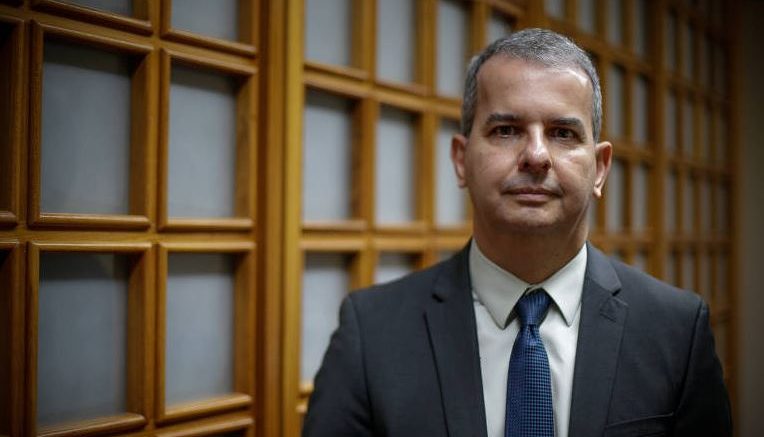“The MPF acts in CADE’s sanctioning proceedings, and our role is precisely to verify whether there are any irregularities to be punished or remedied…”
Ubiratan Cazetta is a prosecutor representing the Federal Public Prosecutor’s Office (MPF) before the Administrative Council for Economic Defense (CADE). Cazetta holds a law degree from the University of São Paulo Law School and a master’s degree in human rights from the Federal University of the State of Pará.
AgriBrasilis – What are the pros and cons of the soy moratorium?
Ubiratan Cazetta – The soy moratorium is an experiment that has been in place for almost 20 years and, in the view of the Federal Public Prosecutor’s Office’s environmental activities, has effectively demonstrated results in containing the advance of deforestation in the Amazon, without hindering the growth of productive activity, which took place in consolidated areas of deforestation, with the exclusion of planting in areas of illegal deforestation or where work in conditions analogous to slavery has been found.
The data show that between 2006 and 2023, the area planted with soybeans in the Amazon grew by around 427%, much higher than in other regions of Brazil (which stood at around 115%). On the other hand, only 2.4% of the deforestation that occurred during this period was associated with the expansion of soybean cultivation in the biome.
The fight against deforestation focused exclusively on command and control strategies (inspections and fines, for example), although it plays a decisive role, is not sufficient to respond to the challenge. Sectoral self-regulation strategies with economic incentives for sustainable development are essential.
Therefore, from an environmental perspective, the soy moratorium is one of the successful examples of joint action by the productive sector and state agencies in pursuit of rational use of environmental assets.
Criticism of the soy moratorium has so far failed to point out what competition violations it entails. There is an underlying discussion about the economic disincentive to open up new areas of deforestation in the Amazon for soybean cultivation, but the discussion ends up having an essentially environmental bias rather than a competitive one.
AgriBrasilis – Do you believe that the moratorium restricts free competition?
Ubiratan Cazetta – Based on the data collected so far, it is not possible to say that free competition is affected by the soybean moratorium. But it is important to understand what is meant by free market competition, and this forces us to remember that free market competition does not exist in isolation, focused on itself, because it must also involve elements that protect consumers and the environment, which includes differentiated treatment (based on environmental impact) of the products offered.
When we think of free market competition in which one product comes from an area of deforestation that has already been consolidated (in the form of the Forest Code) and another that intends to be produced with the expansion of deforestation, we are talking about products with different degrees of environmental degradation and which, for this reason, may be treated differently.
“The preventive measure is just one of the tools that CADE can use to curb anti-competitive behavior…”
AgriBrasilis – Will Brazil lose credibility if it abandons the agreement?
Ubiratan Cazetta – Market demands (especially foreign markets) regarding the sustainability of products from the Amazon are a fact and have an impact on access to certain markets, as well as on the value of the product being sold. Without a guarantee that Brazilian soy is not linked to increased deforestation in the Amazon or other environmentally unsustainable practices, it is easy to infer that Brazilian products may be subject to restrictions.
AgriBrasilis – What can be expected after the suspension of CADE’s decision?
Ubiratan Cazetta – The preventive measure is just one of the tools that CADE can use to curb anti-competitive behavior, and it requires a series of requirements that demonstrate its urgency.
What is being discussed at this early stage is whether there are elements that have not been directly identified in the last 20 years and that demonstrate the urgency of suspending the moratorium. But the discussion does not end with the preventive measure, and CADE will be able to investigate whether anti-competitive practices exist and, if so, take measures to correct the flaws, without necessarily talking about a binary decision, where the answer is yes or no to the moratorium.
At the end of the investigation, CADE may conclude that nothing illegal occurred from a market competition standpoint, or that it has identified measures that need to be taken to prevent such occurrences in the future.
AgriBrasilis – What is the role of the MPF in this process?
Ubiratan Cazetta – The MPF acts in CADE’s sanctioning proceedings and our role is precisely to verify whether there are irregularities to be punished or remedied, with reference to Brazilian law, which includes understanding the economic order in its entirety. If there is an offense to be punished, the MPF will expressly indicate it, with its opinion on who should be punished, what the punishment should be, and what remedies need to be applied to correct the conduct.
READ MORE:

